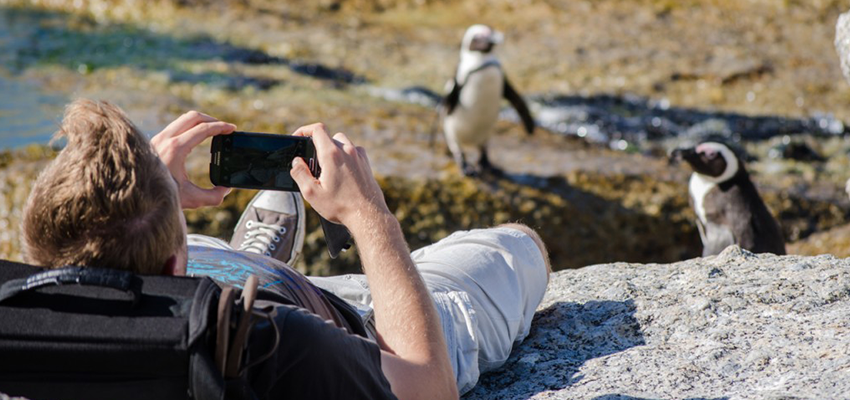It’s becoming more and more important to think about the marks we leave on places when we travel. After all, we all want future generations to be able to enjoy the beautiful places we visit. It’s difficult to know where to start, but don’t fear: we’ve put together a list of ways to make a positive impact on Cape Town when you visit.
Be water-wise
Cape Town is experiencing a severe drought, and both locals and visitors need to use water as sparingly as possible. Take quick showers instead of bathing, and don’t put your towels in the laundry basket unless it’s absolutely necessary. Make sure you properly close taps and remember that every drop counts!
Choose experiences that make a difference
There are a number of organisations and companies that offer fabulous experiences that have a positive social and environmental impact. Learn about Cape Town’s incredible biodiversity in the beautiful Kirstenbosch Gardens, or visit SANCCOB (South African Foundation for the Conservation of Coastal Birds) where you can ‘adopt’ and sponsor an African penguin. At Original T-Bag Designs in Hout Bay you can buy functional art made from used tea bags.
Use public transport
One of the easiest ways to reduce your impact on any trip abroad is to get around like a local. A great way to get around is to take the City Sightseeing tour. You’ll get to see the whole city without unnecessary driving, and the buses are carbon neutral! The MyCiTi Bus is also efficient and affordable, and although the trains don’t always run on time they’re a fantastic way to see the False Bay area.
Think before you shop
Buying souvenirs is a great way to remind you of your trip to Cape Town, and it’s a great way to contribute to the livelihood of local artists and crafters. Purchase souvenirs directly from community markets and crafters so that the money goes directly to local businesses. The Pan African Market is centrally located and has some stunning items to take home.
Stay in sustainability-focused establishments
Research eco-friendly accommodation—many hotels, lodges and Airbnb owners collect rain water, recycle water, and employ other conservation strategies. When making bookings, ask about these strategies and choose those who are making an effort. The Tsogo Sun is an example of a hotel that has made great strides in reducing its water consumption.
Do your research
Taking some time to learn about the customs and traditions of the local people will go a long way in showing respect to your hosts. South Africa has 11 official languages, but in Cape Town English, Afrikaans, and isiXhosa are the most widely spoken. Learning a couple of phrases in the local languages, even if you don’t pronounce them perfectly, will undoubtedly make someone smile and is a great way to start a conversation.
Be mindful of animals
Cape Town has no shortage of wildlife—from the African penguins at Boulders Beach and dassies on Table Mountain to the baboons around Cape Point. It’s important to remember that these are wild animals. Pay attention to signage about these animals, and don’t feed or try to touch them.
Donate to social organisations
There are many people in Cape Town living below the breadline, and without homes. If you want to help, you can donate to a number of organisations in Cape Town that provide meals, shelter, and other services to the poor and homeless. This way you’ll know where your contributions are going and that you are making a real difference.
For more information on responsible tourism in Cape Town, visit www.responsiblecapetown.co.za.
By Cape Town Tourism


